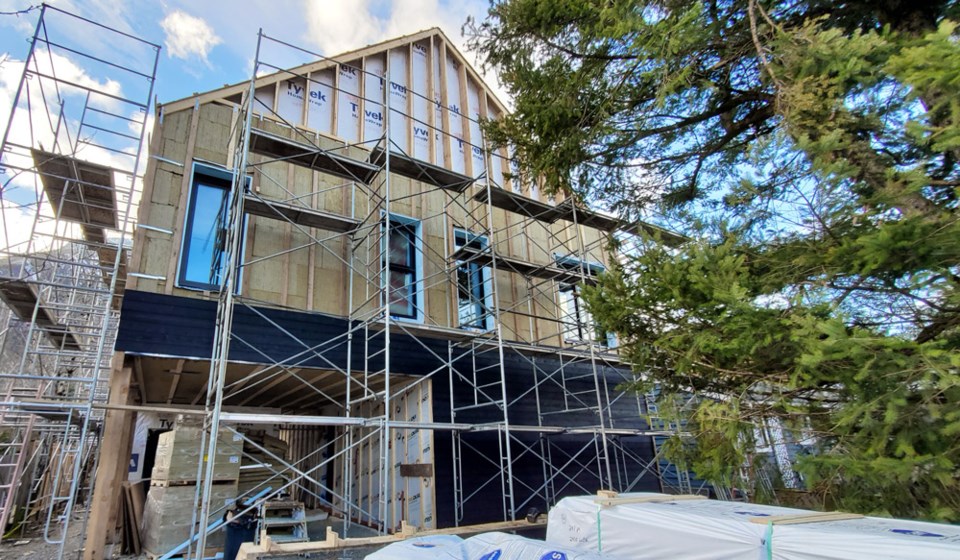Keen on having an ultra-efficient home that leaves a much smaller carbon footprint on the environment?
Well, you may have heard the term “passive house” while doing some research. But, what exactly does a passive house entail? And how is constructing one different from traditional means?
“A certified passive house is essentially an over-insulated, air-tight building that relies on an HRV (heat, recovery,ventilation) system to bring fresh air into the building and expel stale air,” explains Mike Vancapelle, Owner and Founder of Squamish-based Blue Water Concepts, which specializes in designing and building passive homes.
With increased insulation comes efficiency.
“For one of the passive houses we are building right now, the heating bill is estimated to be $140 annually,” Vancapellesays, adding it has no furnace, or wood fire, just a small, hair dryer-like unit inside the HRV to keep temperatures comfortable in cold seasons.
You also don’t need to cool the home during warmer parts of the year thanks to a design that takes into account sun shading studies and special screens protecting the windows from direct sunlight.
But being “green” is not the sole benefit to owning a passive home.
Those suffering from allergies will be well protected from the seasonal affects of pollen and even forest fire smoke as the barriers in a passive home will screen almost all of that from entering the building.
“You will virtually be allergy-free,” Mike Vancapellesays, pointing to the robust Hepa (High Efficiency Particulate Air) filter system passive homes use inside their HRV units, along with charcoal filters for smoke.
And that speaks to the overall quality that goes into building a passive home.
“You certainly know what you’re getting when you have a certified, passive home built for you,” Vancapellesays. “You get a report card to verify it has been built to certain standards.
“Plus, the workmanship is of a much higher level than normal.”
But what does that all cost?
A rule of thumb is that passive homes are roughly 15 per cent more expensive than traditional construction.
“You are not likely to build one to flip it,” Vancapelle says. “But if you are intending to build one in Squamish that you plan to live in for the next 15, 20 or 30 years—your forever home, a passive house is the preferable option that people should consider.”
For more about Blue Water Concepts and how they can design and build a passive home for you, visit the website at , or call 604-389-8554.

.jpeg;w=80;h=120;mode=crop)


